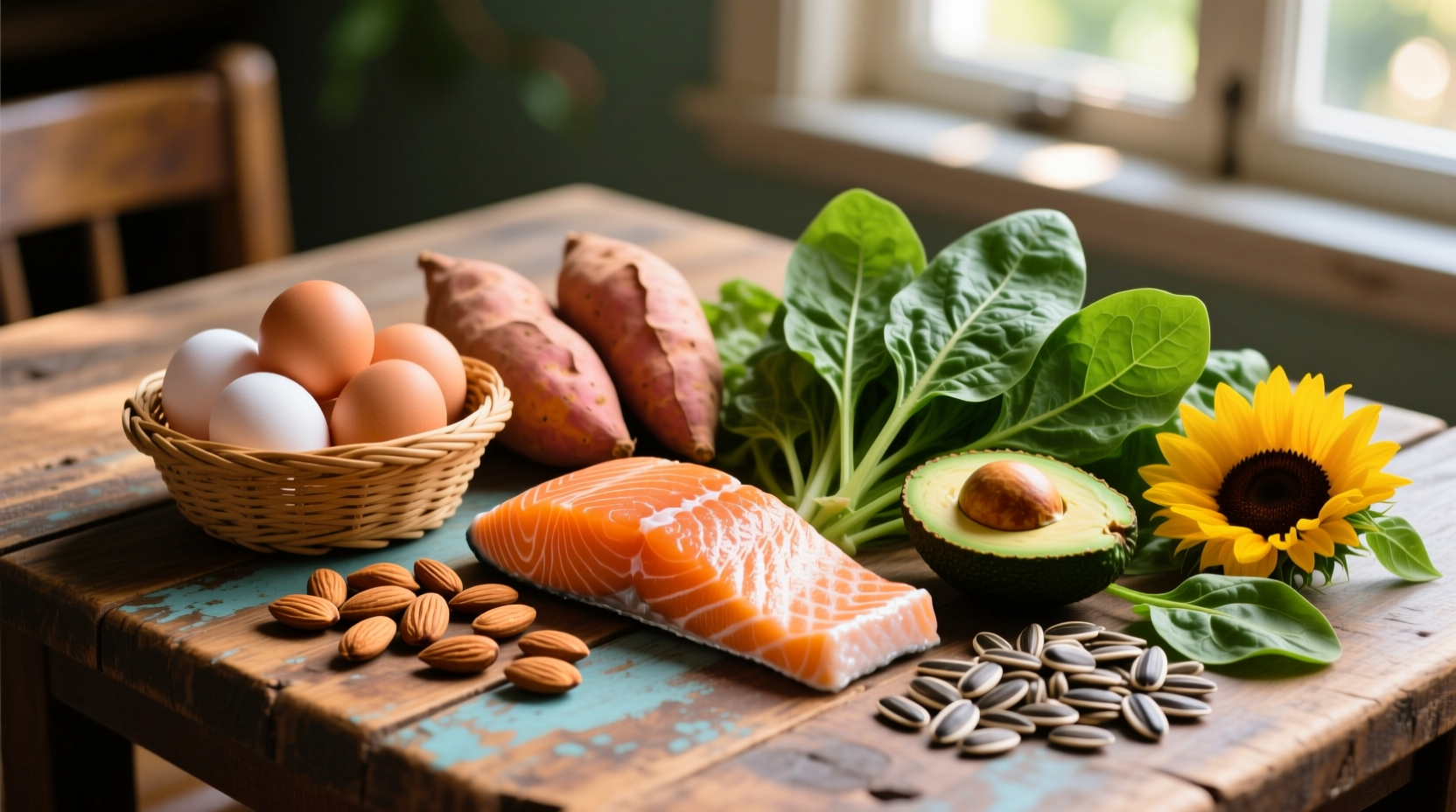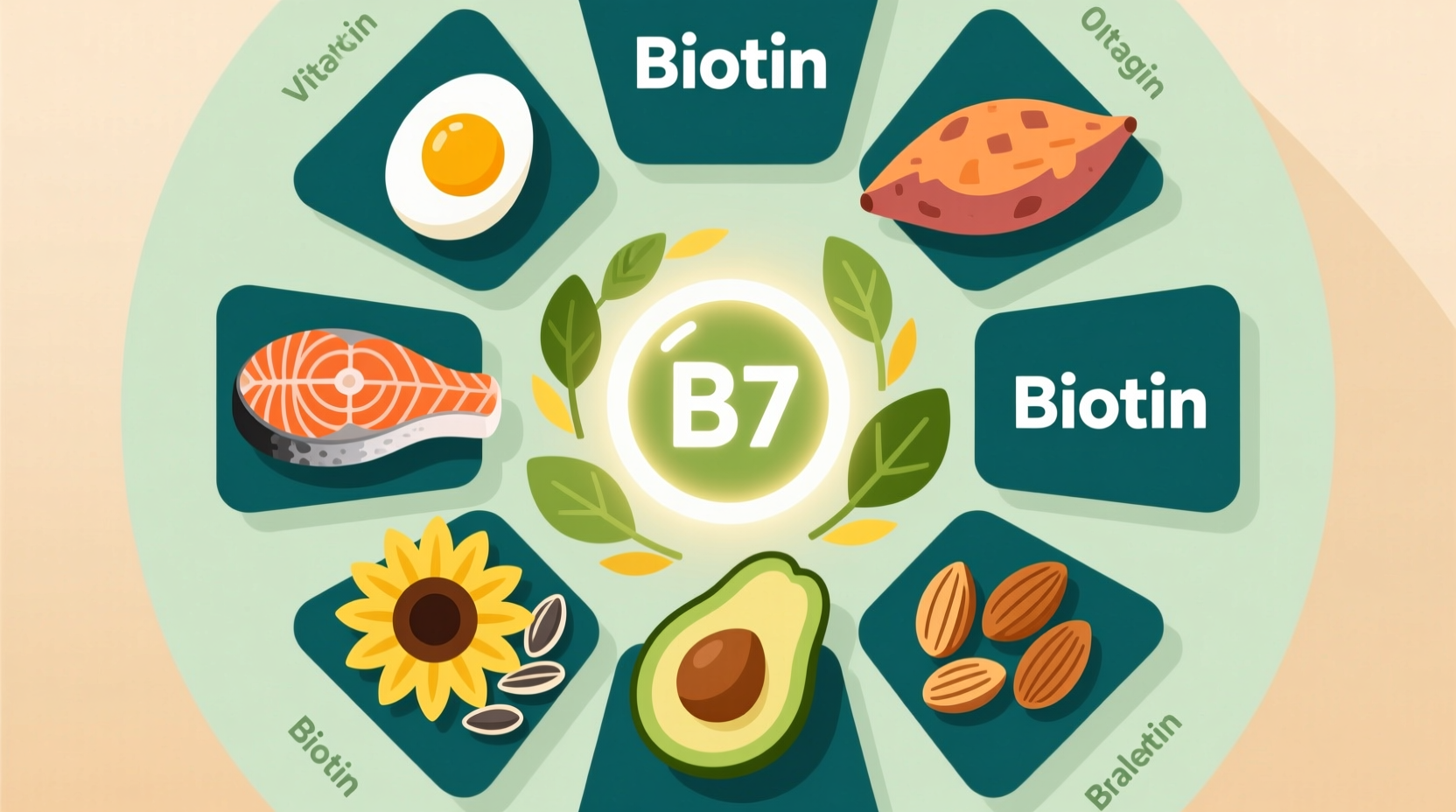Understanding Biotin and Why Food Sources Matter
Biotin, also known as vitamin B7 or vitamin H, plays a crucial role in converting food into energy and maintaining healthy hair, skin, and nails. While biotin supplements exist, getting this essential nutrient from whole foods offers additional nutritional benefits and better absorption. The recommended daily intake for adults is 30 micrograms (mcg), easily achievable through a balanced diet rich in biotin-containing foods.
Unlike supplements, food sources provide biotin alongside other vitamins, minerals, and compounds that work synergistically in your body. This natural combination supports overall health beyond just meeting your biotin requirements. Let's explore the most reliable dietary sources backed by nutritional science.
Natural Food Sources of Biotin: What You Need to Know
When searching for what foods have biotin, it's important to understand that biotin content varies significantly across food categories. The following sections break down the most concentrated sources to help you build a biotin-rich diet.
Animal-Based Biotin Powerhouses
Animal products generally contain the highest concentrations of biotin. These foods provide biotin in its most bioavailable form, meaning your body can absorb and use it efficiently.
| Food | Serving Size | Biotin Content (mcg) | % Daily Value |
|---|---|---|---|
| Beef liver | 3 ounces cooked | 30-100 | 100-333% |
| Egg yolk | 1 large | 10-13 | 33-43% |
| Salmon | 3 ounces cooked | 5 | 17% |
| Ground beef | 3 ounces cooked | 3-6 | 10-20% |
Research from the National Institutes of Health confirms that organ meats like liver contain exceptionally high biotin levels. However, moderation is key with liver due to its high vitamin A content. Eggs remain one of the most accessible and consistent biotin sources for daily consumption.
Plant-Based Sources for Vegetarians and Vegans
For those following plant-based diets, several excellent biotin sources exist. While plant foods generally contain less biotin than animal products, strategic meal planning ensures adequate intake.
Among the best foods high in biotin for vegetarians, nuts and seeds stand out. Almonds, peanuts, and sunflower seeds provide significant amounts per serving. Legumes like soybeans and black-eyed peas also contribute valuable biotin to plant-based diets.
One practical tip: raw egg whites contain avidin, a protein that binds to biotin and prevents absorption. Cooking eggs neutralizes avidin, making the biotin in cooked eggs fully available. This explains why how much biotin in eggs varies based on preparation method.

Maximizing Biotin Absorption from Your Diet
Simply knowing which foods contain the most biotin isn't enough—you need strategies to maximize absorption. Food preparation methods significantly impact biotin availability:
- Cook animal proteins thoroughly to neutralize avidin in egg whites
- Avoid excessive raw egg consumption which can inhibit biotin absorption
- Pair biotin-rich foods with healthy fats to enhance absorption of fat-soluble nutrients
- Rotate protein sources throughout the week to ensure consistent intake
According to USDA FoodData Central, biotin remains relatively stable during cooking, unlike some other water-soluble vitamins. This means most preparation methods preserve biotin content effectively.
Dietary Considerations for Special Needs
Your biotin requirements may increase in certain situations. Pregnant women, for example, have higher biotin needs, with the NIH recommending 30 mcg daily during pregnancy and 35 mcg while breastfeeding.
For those following specific dietary patterns:
- Keto dieters can rely on eggs, fatty fish, and nuts for biotin
- Vegans should focus on nutritional yeast, almonds, and sweet potatoes
- Gluten-free eaters have abundant options since biotin-rich foods are naturally gluten-free
It's worth noting that while biotin rich foods for hair growth are frequently discussed online, scientific evidence connecting dietary biotin to hair health in non-deficient individuals remains limited. Biotin deficiency can cause hair loss, but excess biotin beyond daily needs doesn't necessarily improve hair quality.
Building a Biotin-Rich Meal Plan
Creating daily meals with adequate biotin is simpler than many realize. Here's a sample day of eating that meets and exceeds biotin requirements:
- Breakfast: Scrambled eggs with spinach (20 mcg biotin)
- Lunch: Salmon salad with sunflower seeds (15 mcg biotin)
- Snack: Almonds and avocado (8 mcg biotin)
- Dinner: Chicken with roasted sweet potatoes (12 mcg biotin)
This sample menu provides approximately 55 mcg of biotin—nearly double the recommended daily amount—while delivering balanced nutrition from whole food sources.
Practical Tips for Everyday Biotin Intake
Integrating biotin-rich foods into your routine doesn't require drastic changes. Start with these simple strategies:
- Add a handful of sunflower seeds to your morning yogurt or salad
- Choose whole eggs instead of just egg whites for breakfast
- Snack on almonds instead of processed crackers
- Include sweet potatoes as a side dish 2-3 times weekly
- Use nutritional yeast as a cheese substitute in vegan dishes
Remember that variety is key. No single food provides all your nutritional needs, but a diverse diet rich in the biotin rich foods list mentioned here ensures you'll meet your requirements naturally.
When to Consider Professional Guidance
While most people get sufficient biotin from their diet, certain medical conditions or medications may affect biotin status. If you experience symptoms like thinning hair, brittle nails, or skin rashes that don't improve with dietary changes, consult a healthcare provider.
Registered dietitians can help create personalized meal plans that address specific nutritional needs while considering your dietary preferences and restrictions. They can also help interpret lab results if biotin testing becomes necessary.











 浙公网安备
33010002000092号
浙公网安备
33010002000092号 浙B2-20120091-4
浙B2-20120091-4